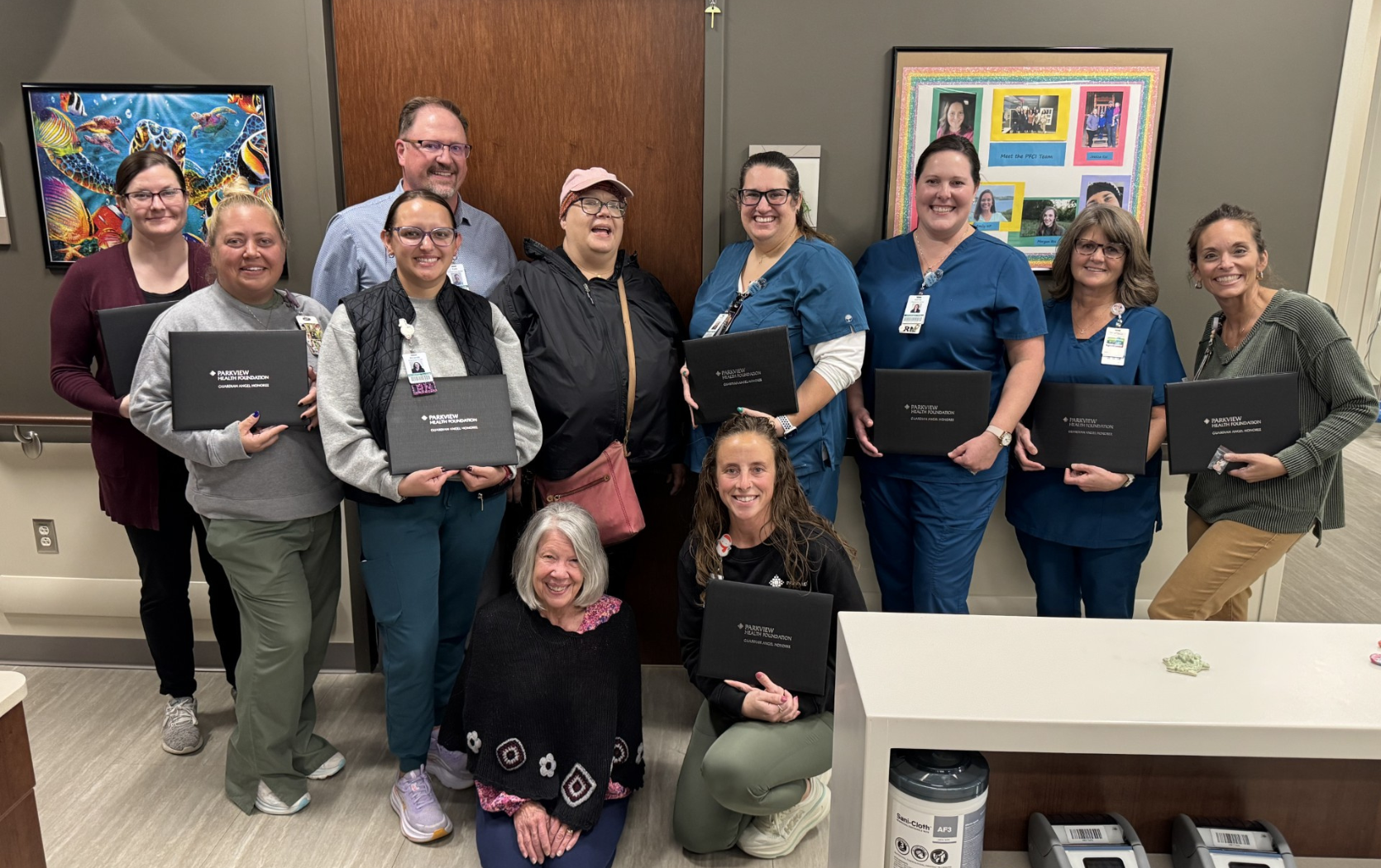
Imagine: Over the past few months, you begin having symptoms you can’t explain. You’re tired more than usual, your joints ache, and you can’t concentrate during normal daily tasks. You go see your primary care doctor and they evaluate you. The evaluation is inconclusive, and you are referred to a specialist. The wait to see the specialist is a few months away, but you’re having difficulty taking care of your family, doing your job and functioning in your normal routine.
The reason you’re feeling this way may be simple; however, at times, the answer is more involved due to a complex medical condition. Katie Kaiser, PT, DPT, supervisor of rehabilitation at Parkview Huntington Hospital, and Erika VanEngen, PT, DPT, MHA, OCS, COMT, CSCS, rehab therapy manager at Lehman YMCA Therapy, shed some light on how, regardless of whether a condition is acute or chronic and even progressive, therapy can help maintain or regain quality of life and offer patients a sense of agency even in an uncertain situation.
The impact of complex medical conditions
Complex medical conditions are health issues that require ongoing care and can range from well-known diagnoses to rare disorders. They are numerous, but here is a partial list: genetic disorders, autoimmune diseases, autonomic dysfunction, long COVID, Lyme disease, rheumatic conditions, chronic or progressive musculoskeletal or neurological conditions, vestibular disorders, vascular and heart disorders, gastrointestinal disorders, psychological health, or a combination of the above. These conditions affect each person in unique ways and disrupt overall well-being and the ability to function. They can develop slowly or appear abruptly.
Symptoms can affect multiple systems throughout the body and vary from localized to debilitating, mild to severe. They can appear episodically, or continuously progress over time. They may be difficult to identify, and even more difficult to diagnose. In more severe cases, it can take years and several health care specialists to obtain a diagnosis and develop an effective treatment plan.
Alleviating symptoms
If you find yourself in this kind of situation, take heart. You don’t have to just wait until your care team finds answers. Whether you are still seeking a diagnosis, or you have one and are following your physician’s suggestions, early therapy intervention can play an integral role in helping you maintain and even regain quality of life. Therapy can enable you to manage symptoms, or sometimes prevent them from worsening.
Testing and imaging can assist with directing therapy treatment in some cases but are not essential, so you don’t necessarily need to wait on results or a provider referral to start therapy. Your therapist is trained to look for red flags that would prevent you from participating in therapy. With rare exceptions, it is safe to participate without any testing at all.
Therapy can help with these and other symptoms:
- Loss of function and mobility
- Numbness/tingling
- Swelling
- Headaches
- Pain
- Constipation
- Stiffness
- Incontinence
- Fatigue
- Difficulty concentrating
- Weakness
- Difficulty eating/swallowing
- Low endurance
- Poor Balance
- Dizziness
There are a wide range of interventions that therapists can use to help you meet your goals. Manual therapy, dry needling or electrical stimulation can provide temporary pain relief and improve range of motion. Graded exercise programs allow you to gently restore strength, endurance and mobility within your body’s tolerance for activity. Balance training can help decrease fall risk and prevent further injury. Therapeutic strategies may also include education to help you conserve your energy and tips for cognition and concentration that can help you maintain independence with self-care, home and work/school tasks.
Therapy offers practical assistance
Remember the scenario at the beginning of this blog? Let’s keep going with it.
Instead of waiting for a specialist appointment which is a few months away, you talk with your primary care doctor about starting therapy. You receive a referral for physical therapy for “joint pain,” and call to schedule an evaluation. Your therapist recommends you schedule follow-up visits over the next month to continue to work on progressing your endurance, mobility and strength. As you work with your therapist and keep up any suggested exercises, you begin to notice it is easier to bend over to put on your socks, get in/out of your car, lift your child and fall asleep at night.
On the day you are discharged from physical therapy, you mention that you also keep dropping things frequently. After evaluating your arm function, your physical therapist asks your physician for a referral to occupational therapy to work on fine-motor tasks. You work on dressing, buttoning, grasping, writing, cooking, and your occupational therapist recommends some specialized equipment and braces for your hands to help with stability.
As you get back to cooking more, you notice that you are having trouble remembering the steps of your favorite recipes. Your occupational therapist recommends that you have an evaluation with a speech therapist. Upon evaluation, your speech therapist provides you with strategies to improve your memory and determines you will not need any follow-up appointments at this time, but encourages you to call back and let them know if you experience further difficulties with memory or word finding.
Today is the day you see your specialist. Your doctor is pleased that you have already begun therapy, and you are proud of the gains you have made in your function thus far. The information your therapists provided on test findings, and how therapy has helped, is useful in determining the next steps for further testing required to determine a potential diagnosis.
You can self-refer for therapy
Parkview offers numerous therapy services throughout the region, including many types of physical therapy, occupational therapy, speech therapy, and cardiac rehab services. Each unique discipline specializes in addressing different types of symptoms or functional impairments to help you work toward your goals and prevent further decline.
If you are experiencing difficulties due to a complex medical condition, speak with your physician about early therapy interventions. You may also call our patient access team to ask if you may qualify to schedule an evaluation with a therapist directly.



